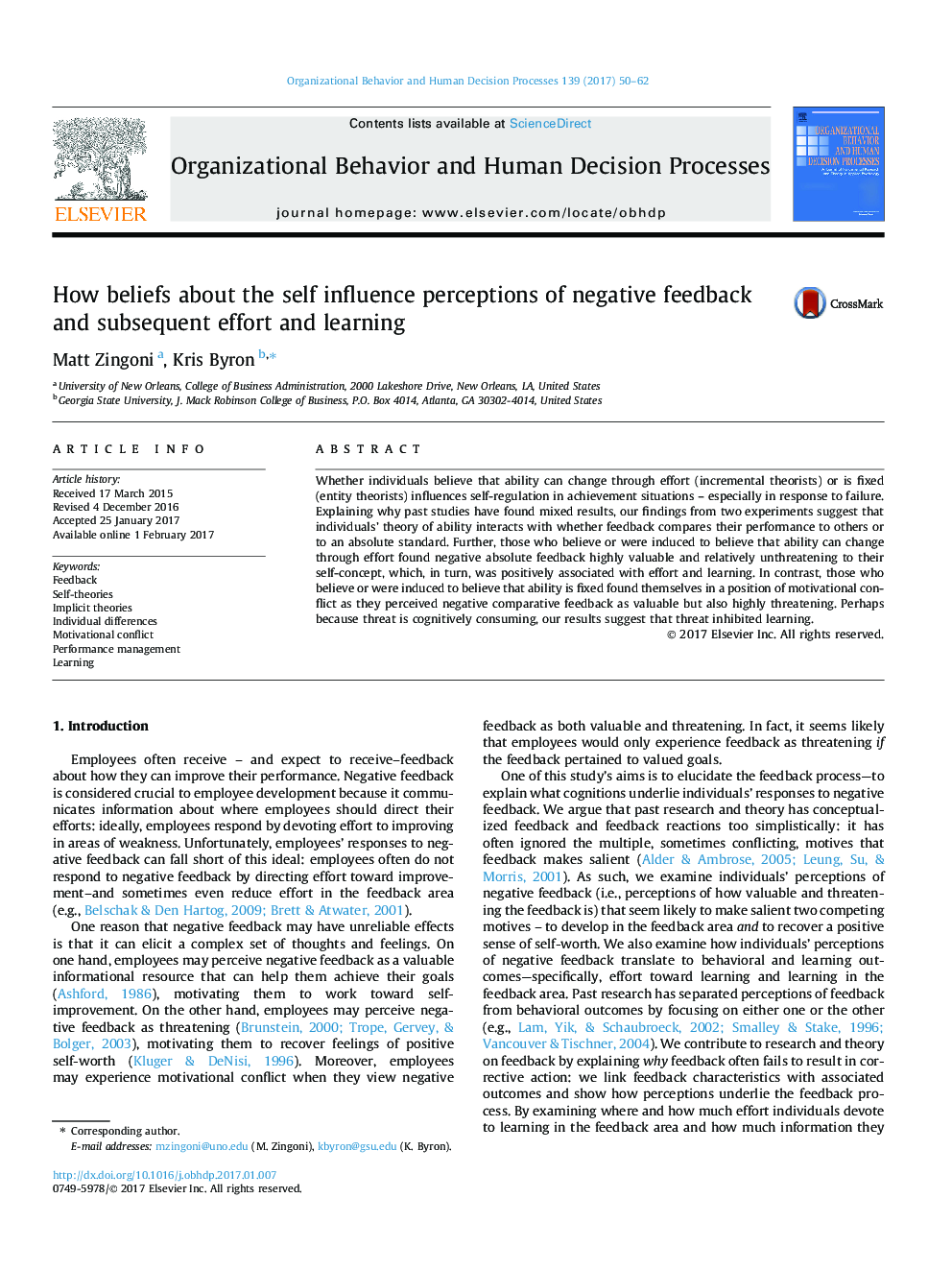| Article ID | Journal | Published Year | Pages | File Type |
|---|---|---|---|---|
| 5035344 | Organizational Behavior and Human Decision Processes | 2017 | 13 Pages |
â¢Beliefs about ability affect how people respond to negative feedback.â¢Negative feedback may elicit conflicting motives-to improve and preserve the self.â¢Incremental theorists devote effort and learn with negative absolute feedback.â¢Entity theorists learn the least with negative relative feedback.
Whether individuals believe that ability can change through effort (incremental theorists) or is fixed (entity theorists) influences self-regulation in achievement situations - especially in response to failure. Explaining why past studies have found mixed results, our findings from two experiments suggest that individuals' theory of ability interacts with whether feedback compares their performance to others or to an absolute standard. Further, those who believe or were induced to believe that ability can change through effort found negative absolute feedback highly valuable and relatively unthreatening to their self-concept, which, in turn, was positively associated with effort and learning. In contrast, those who believe or were induced to believe that ability is fixed found themselves in a position of motivational conflict as they perceived negative comparative feedback as valuable but also highly threatening. Perhaps because threat is cognitively consuming, our results suggest that threat inhibited learning.
